Should you delve into raising ducks for eggs? Eggs are great, but that’s just one of many reasons to add ducks to your little homestead. If chickens are a homesteader’s “gateway animal,” then ducks must be a full on addiction.
Originally contributed by Heather Harris in May 2016; this post has been updated.
Raising Ducks
Raising ducks can be so simple and rewarding. Ducks are easy to raise, require little effort beyond clean water and food, and are winter-hardy animals.
Their large eggs are great in wonderfully flavorful baked goods, aioli, and more. Getting started with ducks on the homestead is easy, really.
Here, what to feed ducks and ducklings, along with some other pertinent information about how to raise ducks — and five reasons you might want to.
Take a Peek Inside My Book!
Get a free excerpt from my book, Attainable Sustainable: The Lost Art of Self-Reliant Living! You’ll also get my free weekly newsletter, complete with recipes, gardening tips, and a little peek at what’s going on around here — both the zany and the mundane.
Duck Basics
A female is called a duck. Male ducks are called drakes. To tell the difference, look at their tail feathers. Drakes have a tail feather that curls up into a “C.” Female ducks have tail feathers that are straight and smooth.
Ducks quack and can be very noisy. Drakes make more of a “hissing” sound and are not as noisy. Definitely a nice break from crowing roosters!
Raising Ducklings
You can either buy ducklings at your local farm or feed store or from a mail order supply company. Starting with ducklings offers instant gratification, and may be best for first-timers. Once you are well-acquainted with how to raise ducks, hatching fertilized eggs can be a fun process for you.
Ducklings’ needs pretty much mimic baby chicks when it comes to brooding. They need a form of heat (usually in a heat lamp) to keep the brooder at 95-100 the first week. Lower the temperature five degrees per week until they no longer need the extra heat. That is usually at about 4-5 weeks, when they start getting feathers.
Water
Keep plenty of water in your brooder, but NOT in the form of a pool. In the wild, the mother duck will add an oil to her ducklings to keep them afloat in the water.
When you purchase them at the store, they do not have that protection and can actually drown if they get water logged. A simple chick waterer will do for the short time they need it.
Feed
We feed our ducklings the same food as our chicks, since they often brood together in the chicken coop. Some people opt to use a special duck feed. We found it cheaper and easier to purchase one type of animal feed rather than two.
Adult Ducks
Getting started with backyard ducks on the urban homestead is easy, really. Here, what to feed ducks and ducklings, along with some other pertinent information if you’re planning to incorporate these egg layers onto your little farm.
Water
Ducks love water. Lots and lots of water. They are waterfowl and are happiest when they can dunk their head under water.
Supply a pond or a small plastic kiddie pool. If you don’t have room for a pool or pond, a bucket or a dish tub can work.
Know this: They will get fresh water muddy within minutes. Clean and change the water at least daily. (During the summer, we do it more often as they dunk their heads more to cool off.)
Ducks also need water near their food to help them eat. Provide a small bucket near their food. They will make a mess out of whatever water you give them, so smaller quantities near the food is a good idea. A chicken waterer is a good option — they can’t dunk their heads and spill the water everywhere.
What to Feed Ducks
I feed my ducks an all purpose layer feed, the same as our chickens. Lay pellets can also work. Aim for larger pellets if you can, as ducks tend to waste a lot of crumble style feed. (Note from Kris: I use an all-purpose, molasses coated mix for my drakes. It’s less expensive than the organic lay pellets I use for my hens.)
Ducks need a place to forage. They are excellent foragers and chase down mosquitoes, slugs, and other insects with great ease. They love to roam in the garden for short periods to search for insects, and they do so without damaging the plants themselves. Ducks WILL, however, dig their bills into the dirt and can leave small holes everywhere. Limit their time in one single area.
Nesting
Ducks need a place to lay their eggs. Ours sleep in the barn at night, but lay eggs in the compost bin, near their pool, by the fence, and all the way at the back of their yard.
It’s a daily egg hunt since they don’t nest like chickens do. We keep track of how many duck eggs we collect in the morning to know if we need to keep looking or not. Generally, a duck will lay 5-6 eggs a week and we use that guideline to know if the hunt is on or not.
If you happen to come across a surprise clutch of eggs, simply float the eggs in cold water. Those that sink to the bottom are still fresh. Those that “bob” or float are no longer good to eat.
Those need to go into the compost pile. Just like chicken eggs, the cracked eggshells can be used in the garden.
Space
Finally, ducks need space. A minimum of ten feet per bird is a good place to start. Our ducks live with the chickens in the same barn and run. (The ducks stick together and ignore the chickens.) Everyone goes about their business, foraging for bugs and grass and laying their eggs.
Note: Drakes may try to mount chickens, which could be damaging to the chickens. Female ducks can coexist with chickens easily, but if you must house drakes with chickens, be certain that there is a good ratio of ducks to drakes to keep the boys busy with their own. (One drake for every 4-6 females is a good ratio.)
As you can see, learning how to raise ducks and keeping them for meat or fresh eggs can be a fun and simple part of your path to self-sufficiency.
5 Reasons You Need Ducks
Ducks’ personalities are unique, quirky, and lovable. And the fluffy bottoms of ducklings are just so cute, they can steal your heart quickly. Add to that the yummy richness of duck eggs, and you have the top five reasons for adding ducks to your yard or homestead.
1. Ducks Have Great Personalities.
This was our number one reason for raising ducks on our homestead, to be honest. While it’s relaxing to watch a chicken peck the ground, nothing beats the entertainment value of watching a duck shake its tail feathers as it waddles excitedly toward a pool. They can be quite talkative as well, and you will get a sense of who’s the head duck rather quickly among your flock.
Although their temperaments can range widely between “Nervous Nellies” or “Calm Cassies,” they are normally very gentle, especially around kids, and will often quack for a treat of fresh berries or the weeds you just pulled from your garden.
2. Ducks are Easier than Chickens.
I live in Northern Indiana, where winter makes up five months of the year. During the winter, we have to increase the feed for our chickens, perhaps add supplemental light, and take greater measures to close up their coop during winter storms to protect them.
Our ducks have never needed that extra care. As long as they have water that isn’t frozen, duck eggs continue to come consistently throughout the winter without an increase of feed. They require no extra light to continue laying. They are just as happy in the snow as they are in grass, too.
3. Ducks are Easier on the Garden than Chickens.
Ducks are better at foraging than chickens, and they will chase mosquitoes down to catch and eat them. Since they are better at foraging, raising ducks actually requires less feed than raising chickens.
We let our ducks free range in the garden to eat slugs and rarely see damage to the plants or beds. They happily clean up any cabbage worms for us while they’re there. They have been known to munch on a tomato or two, but they usually only eat the ones that have fallen from the vine.
We often put their pool under a trellised squash bed, with the plants hanging down for shade. After they swim around in the cool of the evening, we dump the mucky duck water directly on the squash plants.
The ducks get shade during the day, and the plants get fertilized well in the evening. We have also taken some of that water to water other garden beds. To do so, we dip a bucket into the pool and carry it over.
Related: 3 Good Duck Breeds for Beginners
4. Drakes Make Very Little Noise.
The females, or ducks, are the ones that do all the quacking. Drakes make more of a hissing sound, which is a nice change from a rooster’s noisy crowing. This makes it easier to keep a breeding pair on your homestead. With a drake, you can increase your flock when you want/need to, as you will always have fertile duck eggs.
Yes, always. The drakes are pretty prone to getting their way with the ducks any time they want.
Note from Kris: One thing I didn’t realize before delving into raising ducks is that they are often up and wandering around at night. Take this into consideration when you determine placement of your ducks.
5. Raising Ducks for Eggs
Besides the fact that they are generally 1½-2 times the size of a chicken egg, most chefs will tell you that duck eggs are better for baking. They have a richer taste, especially when served scrambled or fried.
As a bonus, many people who can’t eat chicken eggs due to an allergy are able to consume duck eggs with no problem. Of course, having more protein and minerals than chicken eggs isn’t a bad thing either. [Here’s how duck eggs compare to chicken eggs.]
If you want to sell eggs for cash, raising ducks for eggs are the way to go. In my area, duck eggs are often twice or three times as much as chicken eggs to purchase.

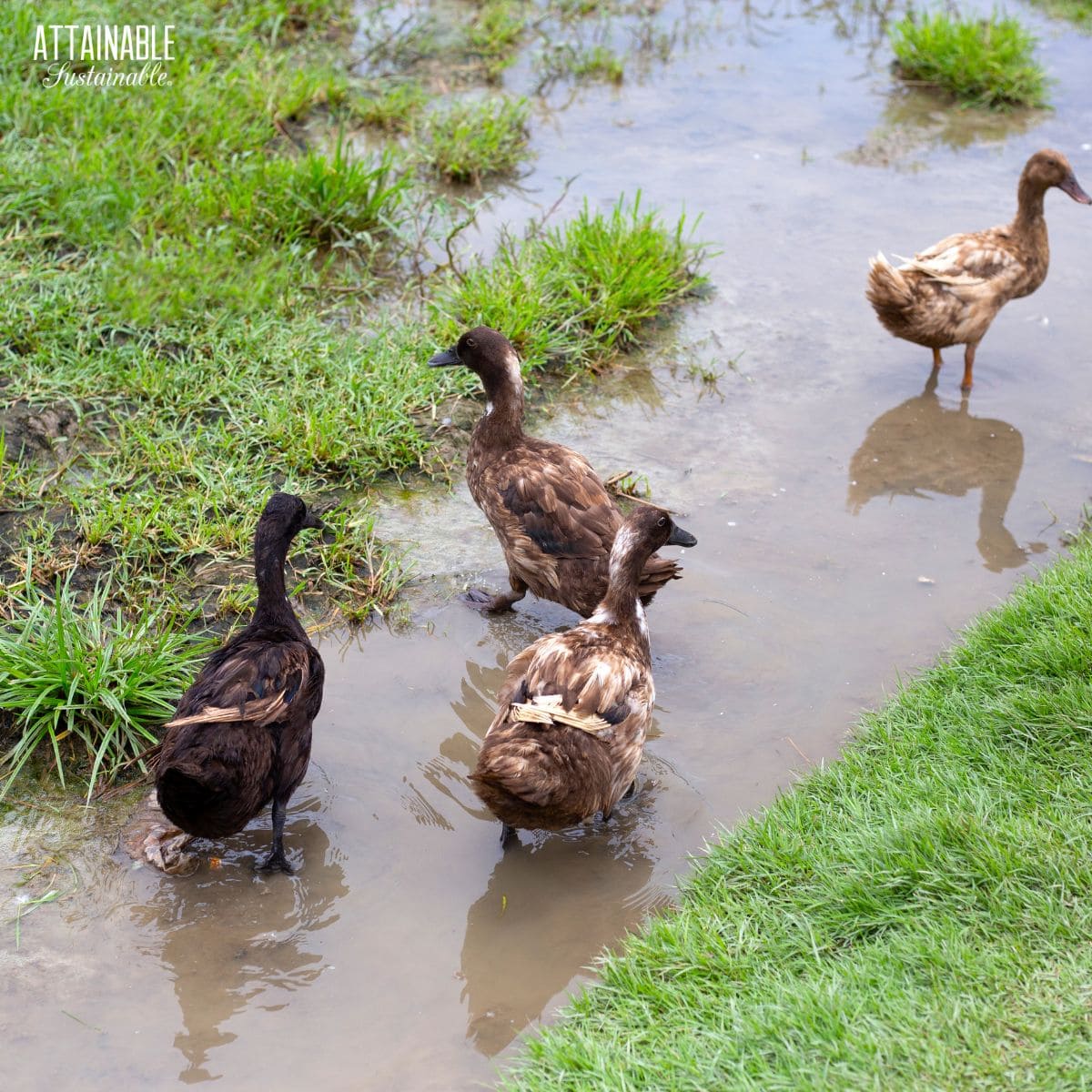
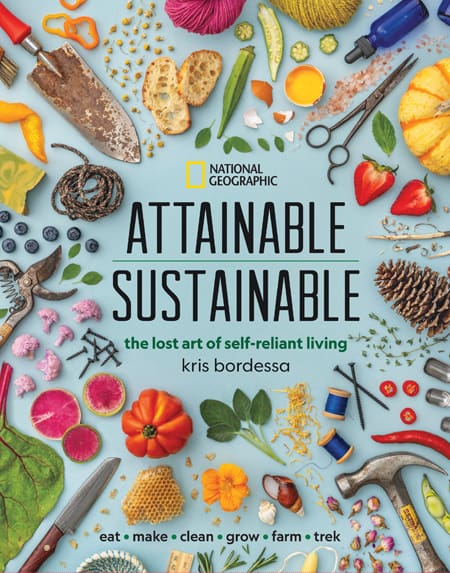
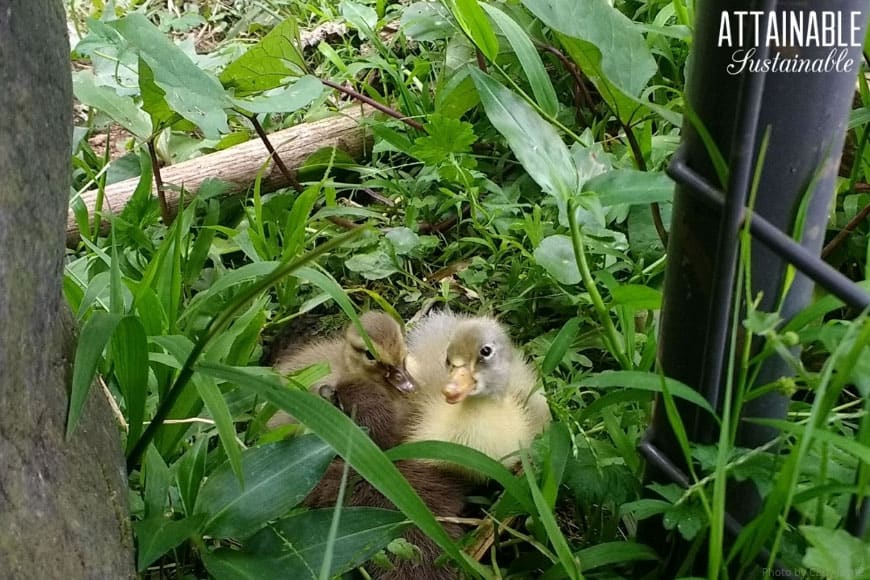
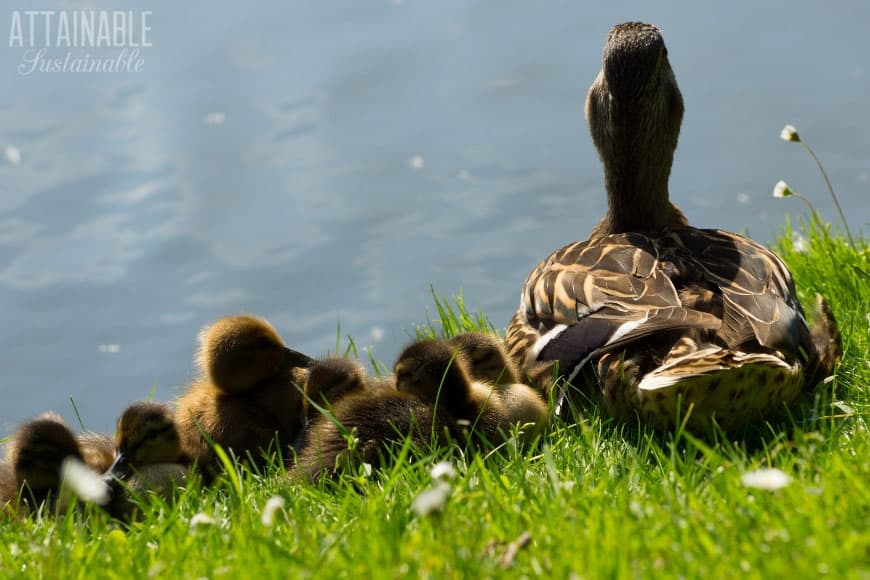
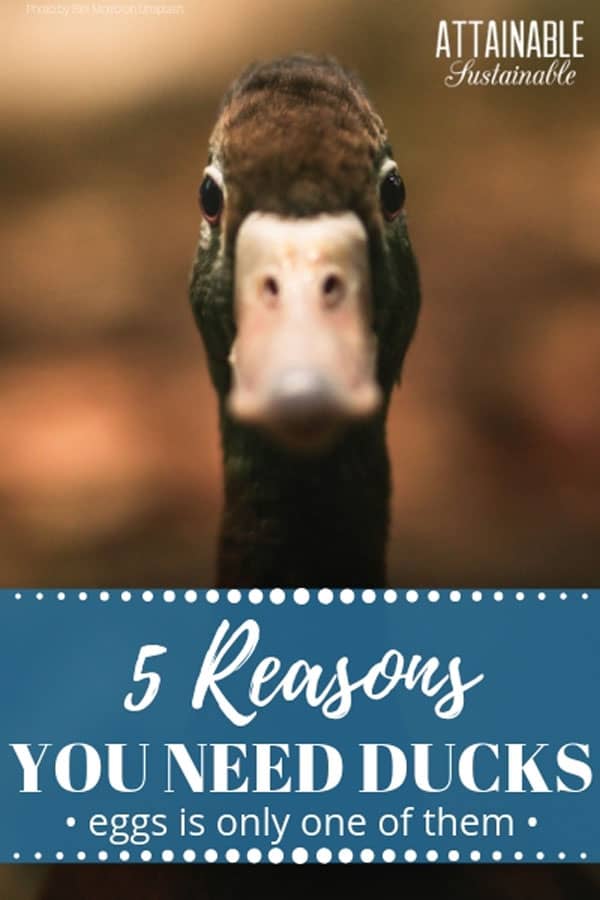
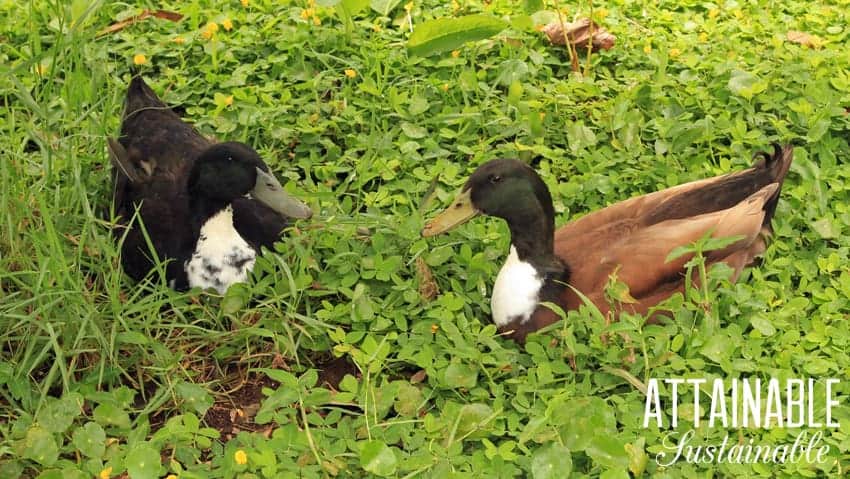
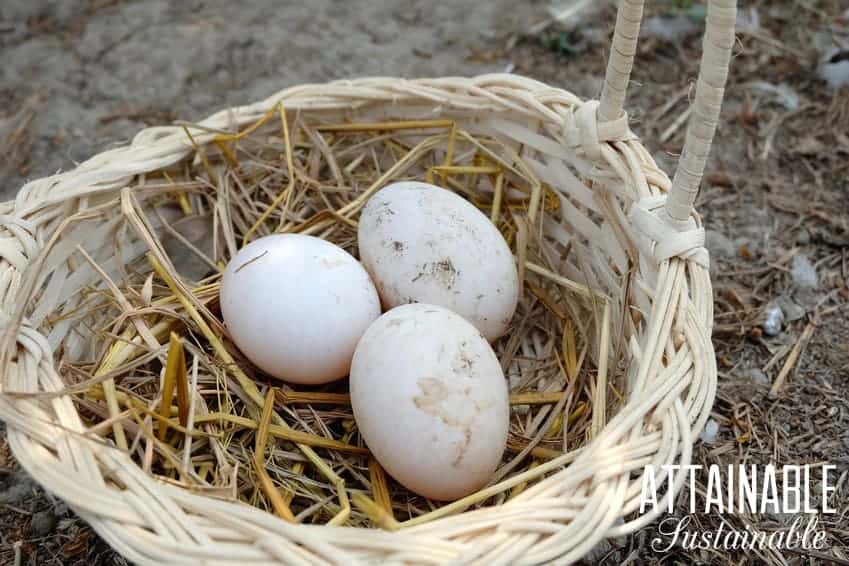

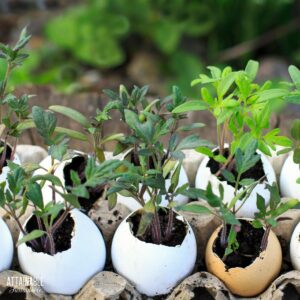
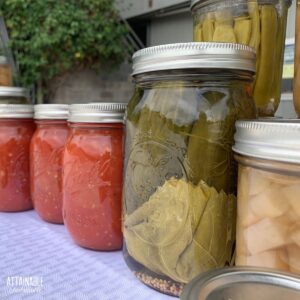
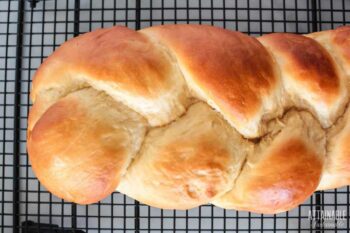
HI- I live in a rural area- Do I have to fence in the ducks and coop them to protect them from predators? I am an amateur poultry hobbyist- Just getting started- Our propertyy does have a large pond….
If you have wild predators or roaming dogs, yes.
Im getting some ducks from a friend. I have a pond and want to build a floating duck house. I dont think the coyotes and the racoons will want to swim out to . I plan on using cedar logs for the raft and put the house on it with enough room for a duck deck for sunning themselves and a floating ramp as they can not jump. I will fence off one end of the pond and a large area of dry ground for foraging for the first two weeks then let them roam more and coop them at night. Do you know of anyone trying this and what were their experiences? Also how large should the nesting boxes be?
Hm. I don’t have any experience with such a system, but I can tell you that ducks will nest where they nest, no matter how many comfy boxes you make for them! (In other words, save yourself some time — they’ll figure out where to nest, and you’ll have an egg hunt!)
Thank you for sharing your insights! I just love reading your articles.
This is a great read! I really wanted to be able to have eggs but was not liking the idea of chickens.
how frequent do ducks lay their eggs, is it the same as chickens?
As far as I can tell, pretty much daily.
How do you clean eggs? With the concerns about salmonella, what is the healthiest way?
I don’t wash my eggs, as it removes the protective bloom. However, this might be helpful if you wish to: https://www.backyardchickens.com/threads/how-to-wash-duck-eggs-for-consumption.416032/
I am also in. Northern Indiana! What breeds do you recommend? Do you sell ducklings in Spring?
We’ve had ducks for years. They get along with our dogs, and eat all the snails and earwigs. We have a kiddie pool for their pond and use the yucky water for our patio plants.
Living in England we have unreliable weather ☔️☔️ But our gorgeous ducks have no problem with it. Your post is a really good read and made me smile. Thank you
wow, I never knew this, and it’s good to know. (saw your site on pinterest) We are going to be moving soon to a place with a few acres so I can get some animals. Now I am thinking ducks instead of chickens.
We added four drakes a couple weeks ago. They are SO much quieter than roosters. We’re thinking about switching our “breeding” poultry over to ducks for that reason.
One question. Do you have a pond stocked with fish? I’ve been told not to get ducks because they will eat all the small fish from your pond. Since catfish is going to be a major protein source on our homestead, this would be a problem. Any thoughts? Thanks
A very small one. It’s high enough that the ducks don’t get in it, though.
Ah yes, we are absolutely loving our Muscovy ducks! Keeping ducks is brand new to us and their independence is greatly appreciated with everything else happening around here! Plus, I just *might love duckling more than chicks in the extended fluffiness and sweetest, itty bitty, webbed feet! 🙂
Hi!
We live on NW Indiana. We have a large front pond but the water quality isn’t good. We want to get ducks for the eggs, the garden, and mostly for our son. Could poor water quality hurt ducks?
I’m not sure what you mean by “poor quality.” My ducks love dirty puddles.